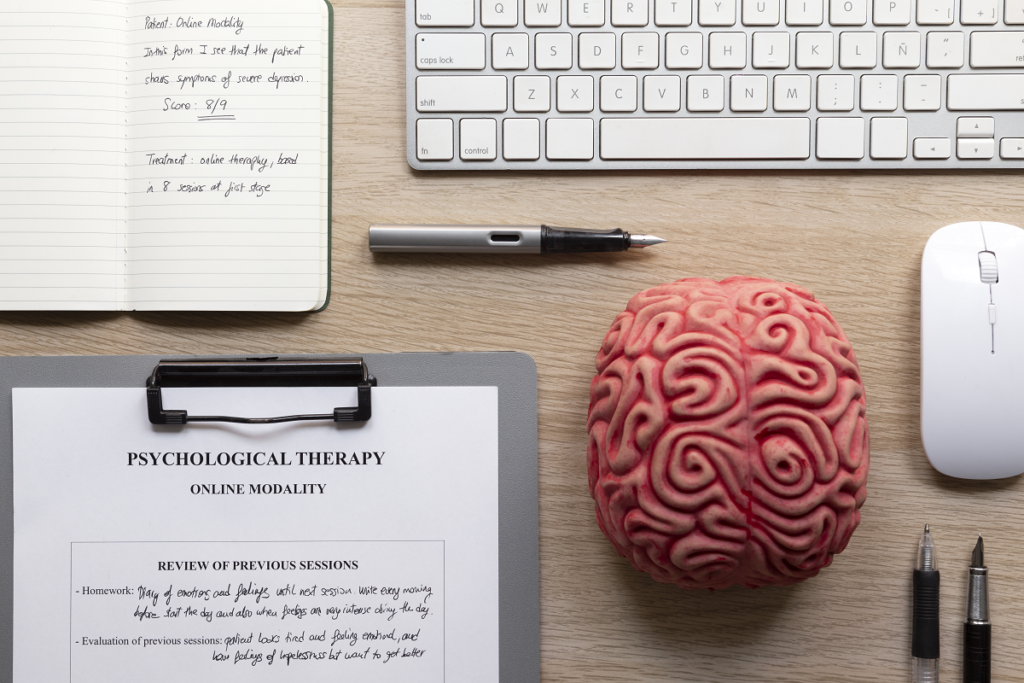A Comprehensive Guide to Mental Health and Wellbeing
Introduction
In today’s fast-paced world, the importance of mental health and wellbeing cannot be excessive. With increasing over-all pressures and the advent of digital lifestyles, mental health issues have become more established than ever. This blog aims to shed light on the significance of mental health, provide valuable insights into its impact on adults, and offer practical strategies for maintaining and improving mental wellbeing.
1. The Popularity of Mental Health Issues in Adults
Thoughtful the scope of mental health issues is crucial for talking them effectively. According to the World Health Organization, one in four people will be affected by a mental or neurological disorder at some point in their lives. Mental health awareness month is dedicated to highlighting these statistics and raising public awareness about the importance of mental health.
Recent studies show that mental disorders like depression, anxiety, and bipolar disorder affect millions of adults worldwide. In the United States alone, nearly 20% of adults experience mental illness each year. This stunning statistic underscores the need for increased mental health awareness and effective involvement.
2. Recognizing the Signs of Poor Mental Wellbeing
Understanding what mental health entails is the first step in recognizing the signs of poor mental wellbeing. Mental health encompasses our emotional, psychological, and social well-being. It affects how we think, feel, and act, influencing our ability to handle stress, relate to others, and make decisions.
Early recognition of mental health issues is crucial for timely intervention. Common signs of poor mental wellbeing include persistent sadness, excessive worrying, mood swings, withdrawal from social interactions, and changes in eating or sleeping patterns. Recognizing these signs can help individuals seek the necessary support and care.
3. Factors Affecting Mental Health
Mental health is influenced by various factors, both internal and external. Genetics play a role, as individuals with a family history of mental disorders may be more susceptible. Environmental factors, such as trauma, abuse, or chronic stress, can also significantly impact mental health. Additionally, lifestyle choices, including diet, exercise, and sleep patterns, contribute to one’s mental wellbeing.
Recognizing the signs of poor mental health is crucial. Symptoms can include persistent sadness, excessive worrying, changes in appetite or sleep, and withdrawal from social activities. Being aware of these signs allows individuals to seek help early and take proactive steps to improve their mental health.
4. Strategies for Maintaining and Improving Mental Health
Maintaining good mental health requires a multifaceted approach. Here are some strategies to consider:
Practice self-care.
Self-care is about taking time for activities that nurture your mind and body. This can include hobbies, relaxation techniques, and regular physical exercise. Engaging in activities you enjoy can significantly boost your mood and reduce stress.
Build Strong Relationships
Social connections play a vital role in mental health. Surrounding yourself with supportive friends and family can provide a sense of belonging and reduce feelings of isolation. Make an effort to maintain and strengthen these relationships.
Seek professional help.
Never hesitate to seek professional help when needed. Therapists, counselors, and psychiatrists are trained to provide support and treatment for mental health issues. They can offer valuable insights and coping mechanisms tailored to your specific needs.
5. The Role of Community and Professional Support
Community and professional support play a vital role in mental health advocacy and care. Mental health first aid training programs equip individuals with the skills to support others experiencing mental health crises. These programs foster a supportive environment and reduce the stigma associated with mental health issues.
Professional support is equally important. Mental health professionals, including psychologists, psychiatrists, and social workers, provide specialized care and treatment. They help individuals develop coping strategies, manage symptoms, and improve overall mental wellbeing.
6. Real-Life Stories and Testimonials
Personal stories and testimonials can inspire and encourage others to prioritize their mental health. Sharing experiences of overcoming mental health challenges can reduce stigma and foster empathy. Here are a few real-life accounts:
Sarah’s Journey
Sarah, a young professional, struggled with anxiety for years. Through therapy and support from her community, she learned effective coping mechanisms and transformed her life. Her story emphasizes the importance of seeking help and the positive impact it can have.
Michael’s Testimonial
Michael, a father of two, faced severe depression after losing his job. With the help of a mental health support group and professional counseling, he regained his confidence and found a new career path. His experience highlights the significance of community support.
Conclusion
Mental health is a crucial aspect of overall wellbeing, impacting every facet of our lives. Recognizing the prevalence of mental health issues and understanding the factors that contribute to them is essential for effective intervention. By adopting proactive strategies and seeking professional help, individuals can maintain and improve their mental health.
Call to Action
Prioritizing mental health is a continuous journey that requires effort and support. Share this post with your friends and family to spread awareness. If you’re struggling with mental health issues, don’t hesitate to seek professional help. Remember, taking the first step towards mental wellbeing can lead to a healthier, happier life.
For more information and resources on mental health, visit organizations like the National Alliance on Mental Illness (NAMI) and Mental Health America (MHA). Stay informed, stay connected, and prioritize your mental health.
Prioritize Your Mind: Essential Insights and Strategies for Mental Health and Wellbeing
1. Understanding the Importance of Mental Health in Today’s Society
Mental health is an integral part of our overall wellbeing, yet it often takes a backseat to physical health. In today’s fast-paced world, where stress and anxiety are common, understanding and prioritizing mental health has never been more crucial. Whether it’s due to work pressures, personal relationships, or societal expectations, many adults find themselves struggling to maintain their mental health. This blog aims to shed light on why mental health is vital for everyone and provide actionable strategies to foster mental wellbeing.
2. Alarming Statistics on Adult Mental Health
To grasp the gravity of mental health issues, let’s look at some statistics. According to the National Institute of Mental Health (NIMH), nearly one in five U.S. adults lives with a mental illness. This highlights the prevalence of mental health conditions in our society. Furthermore, the World Health Organization (WHO) reports that depression is a leading cause of disability worldwide. These figures underscore the urgent need for awareness and intervention.
Additionally, data from Mental Health America indicates that the COVID-19 pandemic has exacerbated mental health issues, with a significant increase in symptoms of anxiety and depression. Understanding these statistics is essential to recognizing the widespread nature of mental health challenges and the importance of addressing them.
3. Community and Professional Support in Mental Health Advocacy
Community support is essential in promoting mental health awareness and reducing stigma. Engaging in local mental health initiatives or joining support groups can create a sense of community and shared understanding. These groups often provide a safe space to discuss experiences and learn from others facing similar challenges.
Professional support, such as mental health first aid training, can empower individuals to assist others in crisis. Programs like these equip people with the skills to recognize signs of mental distress and provide initial help until professional help is available. Advocacy and education are key components in building a supportive environment for mental health.
4. Key Takeaways and Encouragement to Prioritize Mental Health
In conclusion, mental health is a critical aspect of overall wellbeing that demands attention and care. By understanding the prevalence and factors influencing mental health, adopting strategies for improvement, and seeking community and professional support, individuals can foster a healthier mind.
Remember, mental health is not a destination but a continuous journey. Prioritizing it can lead to a more fulfilling and balanced life. Share this post to spread awareness, and if you or someone you know is struggling, don’t hesitate to seek professional help.
5. Further Engagement
For more information and resources on mental health, consider exploring organizations like Mental Health America or the National Institute of Mental Health. They offer valuable tools and support for those in need. Additionally, stay connected with our blog for ongoing insights and tips on maintaining mental health and wellbeing.











